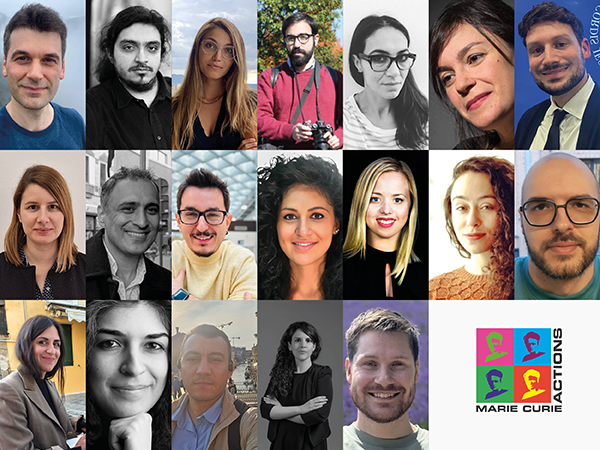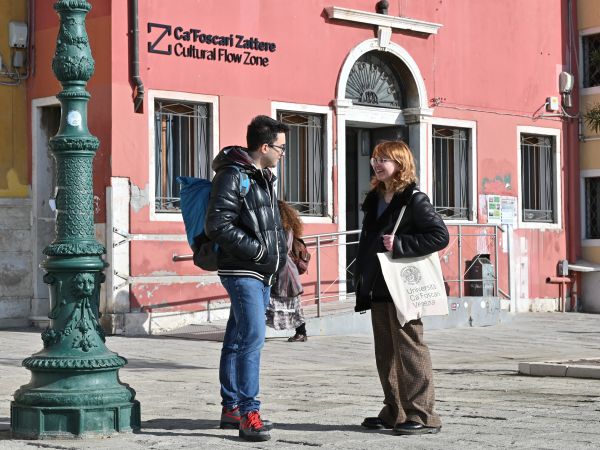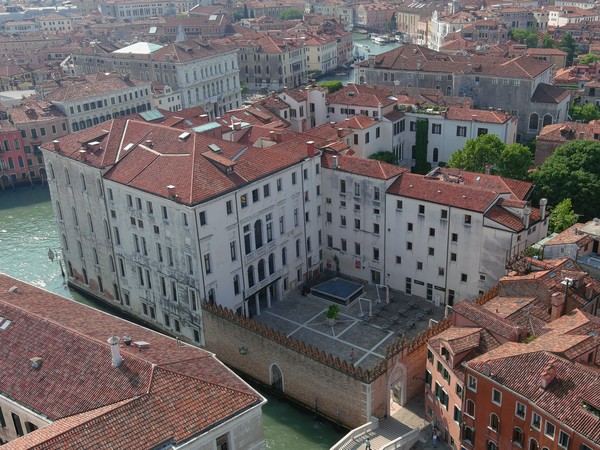A Greener Future for Denim: Ca’ Foscari Wins Its First EIC Grant with GREENDIGO

With the project “Biosolutions for Denim Dyeing within the Planetary Boundaries” (GREENDIGO), Ca’ Foscari University has secured its first grant from the European Innovation Council (EIC), the third pillar of the EU’s Horizon Europe research funding programme.
The project was chosen through the EIC Pathfinder Open call, which funds bottom-up scientific research projects supporting the development of innovative technologies, with grants of up to €3 million per project. This year, out of 2,087 proposals submitted, only 45 were funded, for a total of €142 million — and GREENDIGO is one of them.
The consortium, led by the Danish company Nordic Blue, aims to revolutionise the denim dyeing process by developing the first fully enzyme-based, bio-based method for dyeing jeans — one that is both environmentally and socio-economically safe and sustainable. Alongside Ca’ Foscari, the other partners are AALTO KORKEAKOULUSÄÄTIÖ SR (a private university in Finland) and Bee Granted (SME consultancy firm based in the Netherlands that drafted and managed the project proposal).
Abstract
The global denim industry, which produces over 3 billion pairs of jeans each year, is one of the most chemically intensive sectors in the textile industry. Conventional indigo dyeing depends on synthetic indigo derived from fossil fuels and toxic reducing agents such as sodium dithionite. This process — especially common in South and Southeast Asia — results in widespread water pollution, unsafe working conditions, and high energy and chemical consumption. With the global indigo market valued at €1.2 billion annually (around 80,000 tonnes), scalable and sustainable alternatives are both necessary and urgent.
GREENDIGO aims to revolutionise this process by developing the first fully enzymatic, bio-based, scalable, safe, and sustainable method for denim dyeing. The project — set to commence in April 2026 — will replace traditional indigo with a water-soluble precursor that can be absorbed by cotton fibres under mild aqueous conditions. A specific enzyme will catalyse its conversion into indigo directly on the fabric, removing the need for harmful reducing agents and facilitating a cleaner, more circular dyeing process.
GREENDIGO will combine cutting-edge enzyme engineering, synthetic biology and textile chemistry with advanced sustainability assessment to ensure the process is economically viable, environmentally safe and aligned with planetary boundaries for long-term regeneration. The project applies the European Safe and Sustainable by Design (SSbD) framework and integrates life-cycle assessment, ecotoxicity testing and absolute sustainability modelling. The results will be benchmarked against current industry practices, focusing on emissions, resource use and scalability.
If successful, GREENDIGO will lay the scientific and technological foundations for a new generation of bio-based textile dyes, paving the way for reindustrialising denim dyeing under strict environmental standards. The project supports key EU priorities, including the European Green Deal, the EU Strategy for Sustainable and Circular Textiles, and the Zero Pollution targets.
Elena Semenzin, Professor of Environmental Chemistry and the Rector’s Delegate for Sustainability, leads the Ca’ Foscari team involved in the project. She explains:
“At Ca’ Foscari, we will focus on the critical evaluation of two fundamental aspects supporting this innovative process: chemical safety and sustainability, with particular attention to environmental aspects. Both will be analysed throughout the entire life cycle of the new process. We will conduct comprehensive risk assessments of the substances used, integrating toxicological and exposure analyses. We aim to identify and quantify potential hazards to human health—particularly for workers in the sector—and to the environment. Additionally, we will investigate how these substances break down and what residues (such as by-products and enzymes) may contaminate wastewater during the process. By adopting a sequential, step-by-step approach, our analytical and evaluative work is designed to inform and guide the technological innovation itself, ensuring that safety principles are embedded from the very beginning of the design process. As for environmental sustainability, our goal is to achieve absolute sustainability, going beyond traditional comparative assessments between technological alternatives. We will operate within the ‘planetary boundaries’ framework, evaluating the process’s impacts against global threshold levels and aiding the development of innovative methodologies for sustainability assessment.
Through GREENDIGO, our University further reinforces its commitment to supporting the implementation of the Safe and Sustainable by Design (SSbD) framework, to which the scientific community is called to contribute.”










